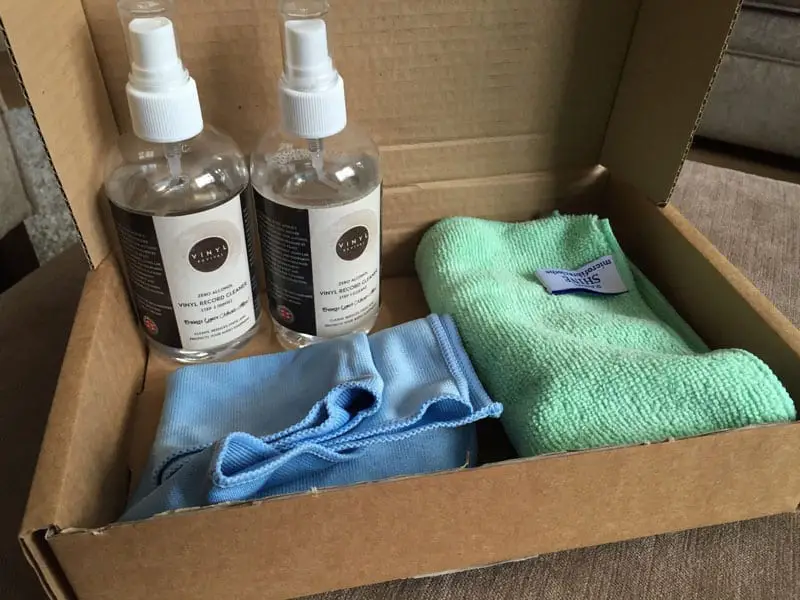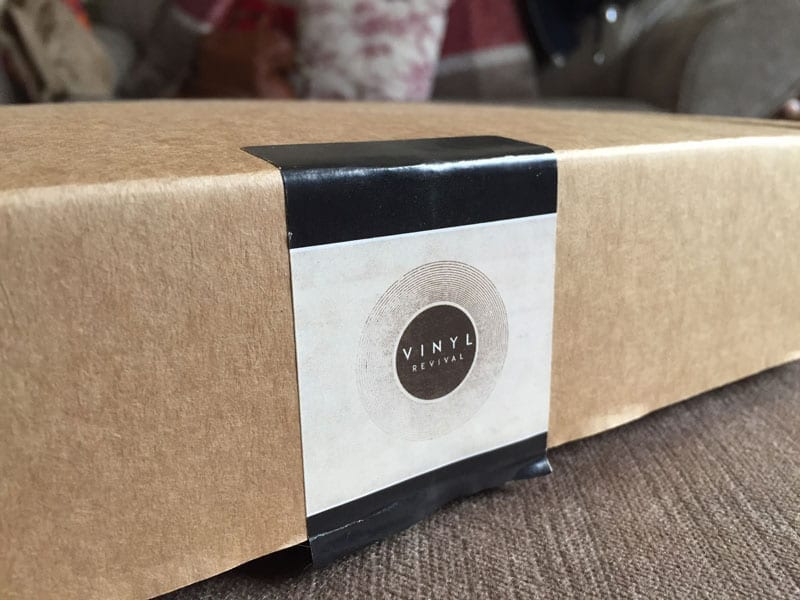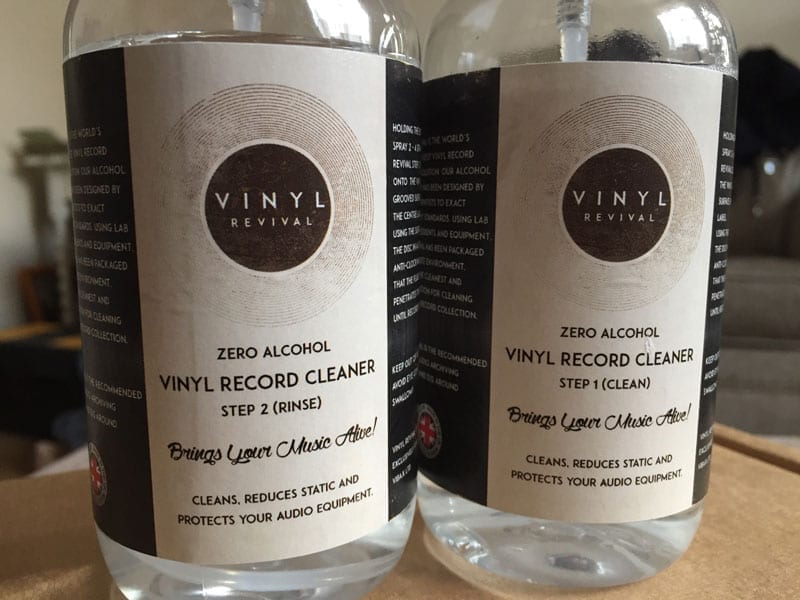I love vinyl records, but when it comes to keeping them clean and clear of dust, they can be a real pain in the neck. There are many ways to keep your vinyl records clean and sounding great, the most affordable of which is a good cleaning solution. Previously, I’ve recommended Clear Groove as an affordable and effective solution, but I’ve recently made the switch to Vinyl Revival.
Why Vinyl Revival Record Cleaner?
The short answer is that Vinyl Revival does not contain isopropyl alcohol, whereas Clear Groove does.
There is much debate in audio industry as to whether or not it’s safe to use alcohol when cleaning vinyl, and while Clear Groove isn’t pure isopropyl alcohol, repeat usage of any cleaner containing corrosive alcohol is not a risk I’m prepared to take. TheVinylFactory.com have a great explanation of why alcohol is not a good idea, here’s an excerpt.
“Pure alcohol strips away much of the rubbish and gunge from grooves – which is great – but it also removes the protective coating that rests on the groove walls/floor. Once that essential protective layer is gone, music sounds harsh and brittle.”
I haven’t experienced any irreparable damage to my records as a direct result of using Clear Groove, but I have noticed an increase in static noise on some occasions after cleaning. This static noise clears after a couple of plays, which would suggest some kind of residue left behind by the cleaning solution, and this can’t be good for the stylus. Vinyl Revival, on the other hand, produced zero noise after cleaning.
I can’t be certain what causes the initial noise with Clear Groove, but I’m inclined to believe the formula isn’t as effective as they proclaim. At the end of the day, you’ll have to trust your ears on this one, but I suspect for many of you, the minor risk from alcohol alone will be enough to put you off.
Here’s how Vibax (the manufacturer) describe why their Vinyl Revival kit is effective and safe:
“Our alcohol-free liquid has been designed by leading scientists to exact laboratory standards. Using lab grade ingredients and equipment, Vinyl Revival has been packaged in a dust free environment, ensuring the cleanest and safest solution for cleaning your vinyl record collection. Vinyl revival is the only 2 step product in the market – a necessity which none of the other ‘garage chemist’ suppliers of competing products are even aware of. Shockingly, other suppliers are openly admitting to using both distilled water AND alcohol in their products!”
I suspect the two-step cleaning process has a lot to do with the lack of residue and noise experienced with other products. By cleaning first, and then rinsing, the record is left clear and residue free. You don’t want leftover cleaning solution coming into contact with your stylus if you can help it.
Product Summary
- 100% Alcohol-Free
- Includes 250ml Step 1 (Cleaner) and 250ml Step 2 (Rinse) – a two-step cleaning solution developed and recommended by scientists to protect and safeguard the longevity of vinyl record surfaces.
- Designed to penetrate grooves, remove dirt and grime and reduce static
- Includes ONE standard microfibre and ONE ultra-fine microfibre cloth (which penetrates grooves significantly more effectively)
The Bottom Line
I’m not going to say you should never use Clear Groove; in some instances, you might find the alcohol content useful for cleaning very contaminated records. What I will say is this: I wouldn’t recommend using Clear Groove regularly on you records. There’s no need to take the risk when Vinyl Revival is just as effective at cleaning the crud out of record grooves and sounds clearer from the get-go. Your precious records need gentle care if they’re to last a lifetime and beyond. Play it safe and avoid any cleaning products containing alcohol.







Just got my kit based on your recommendations. However any idea which micro fibre cloth I should use first? The blue one which seems much finer or the green one? It looks and feels more like it should be used for drying?
Hey Liam. Great stuff. The finer cloth is a finishing cloth and should be used last with your rinse fluid. I hope it works well for you 🙂
Thanks for the info Marc. I’ll be trying it tomorrow!
Thanks – I was looking for something that says which cloth is for which! It’s a shame that they don’t include a note with the kit to clear it up!
Yea, the lack of clear instructions is definitely frustrating with this kit. The two-step process works well, but some clarity wouldn’t go a miss.
I’ve seen a different set of instructions saying that the green cloth is for laying your record on and then the blue cloth should be used for both the cleaning and rinsing?
I’ve seen that suggestion also. However, Id’ve thought that this approach would increase contamination. I guess you’d have to ask the manufacturer directed to know for sure. There’s merit in both approaches. How did the solution work for you?
[…] significant testing, I’ve recently switched to a new cleaning solution (Vinyl Revival). The new solution contains no alcohol and works more effectively, in my […]
Interesting read. I cant comment on the VR cleaner but have never had a problem with Clear Groove, i love the stuff. The surface noise that you notice will probably be due to dirt that has been loosened but not removed by the cloth. Ensuring the fluid is thoroughly wiped until totally dry should help solve this. Also replacing the cloth on regular basis is recommended.
[…] You can remove any record contamination using a variety of methods. For a new record, a simple wet clean using the Vinyl Revival cleaning kit is enough to remove debris and manufacturing residue; you’ll also have the added benefit of removing any static in the process, as the cleaning solution will neutralise any positive charge. Whatever solution you do choose, make sure it’s alcohol-free. Isopropyl alcohol can irreparably damage the records protective coating when used frequently – always check the label before risking your expensive vinyl. (Vinyl Revival is alcohol-free). […]